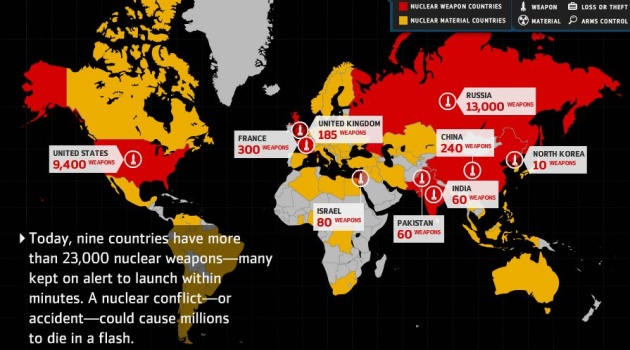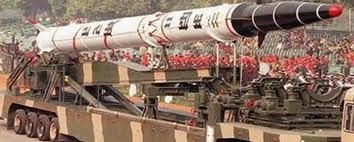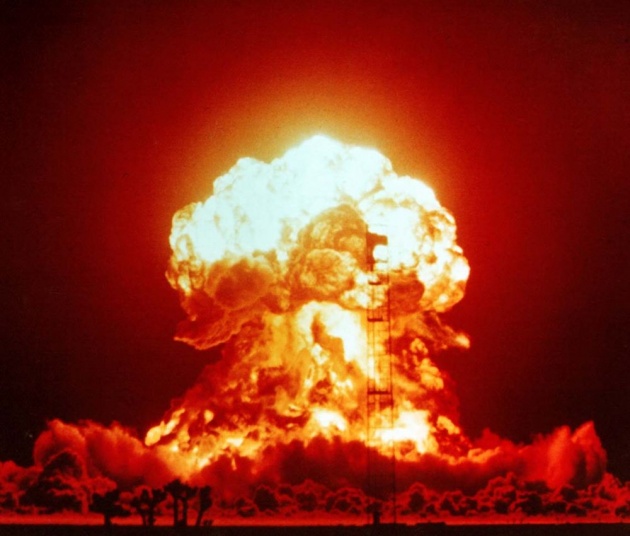In this age of variegated ideological, economic and cultural differences, the renunciation of nuclear weapons may on the face of it, sound utopian. But an optimist always tends to equate impossibilities with lack of confidence and initiative. Though the result of the so many treaties and meeting on banning nuclear weapon have not yielded encouragement of considerable amplitude, one is inclined to conclude that with the progress made so far in this direction and with sustained efforts to mobilise public opinion against building stockpile, renunciation would not be an important feat.

One cannot deny fact that the nuclear power have fully understood the pressing need for banning armaments. There is no sane description of nuclear war. There is only the blinding light of man’s failure to reason with his fellow men. Soviet premier Mr. Kosygin in his speech made in Nations General Assembly in June 1967, had stressed the need for abandonment of nuclear programs in view of their potential threat to the very existence of mankind. What stands on the way to an everlasting agreement is the conflict between the vested invests of the two super powers subscribing to diametrically opposite political and economic ideology. Both of them suspects an ulterior motive in each other’s move towards disarmaments. This suspicion has expressed itself in the series of failure and almost all the conferences on total disarmaments. When the United State, France and Britain proposed an international inspection committee for nuclear tests in 1951, the Soviet Union rejected it as an attempt at camouflaged espionage. Against the Soviets Union sought to achieve a chain-reaction by unilateral declaration of the suspension of nuclear tests. Since the response to the call was very poor, the U.S.S.A had to revoke its declaration. Nuclear test Ban treaty could not prohibited underground nuclear tests. After the Second World War there have been around 60 attempts at achieving a Universal Renunciation but all these have succeeded only partially. AEC (Atomic Energy commission), CCA (Commission for Conventional Armaments), SALT (Strategic Arms Limitations Talks) etc. have achieved.

An analysis of the reason for these abortion would lead us to a few inevitable conclusions, the foremost among which being the lack of transparency of the affairs of the super powers. Russia’s tight security system and the insulation of its internal affairs from the World press. CIA’S underhand assassinations and the leading role it has played in subversion of community Governments and the Gold war that goes on continually between the communist and the capitalist bocks have made mutual trust unsafe step. All the exhibited may mean nothing more than an eyelashes since there in no means to bring into light the shady transactions behind the screams. The signature in the treaty does not really matter; the sincerity behind it matters.

In view of this exigency, the United Nation had declared the seventieth as Disarmament Decade, in the hope that “substantial progress will be made during the coming years toward ending the nuclear arms race……. The U.N has further proposed a shift of 5% of the current military expenditure from arms to development to mark the decade. Treaty for the prohibition of nuclear weapons in Latin America 1967, Treaty on emplacement of nuclear weapons and others weapons in the sea-bed sub-soil there of 1970, General Assembly’s declaration on the prohibition of the use of nuclear and thermo-nuclear weapons, Russia’s recent offer to negotiate on a total bans on nuclear weapons etc. are a few milestone in our path towards the day when the nuclear weapon becomes the part of museum. With the progress we have made in this direction and with unabated attempts in the coming years the day, the dream materializes into an event, may not be far away.




